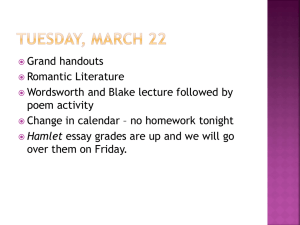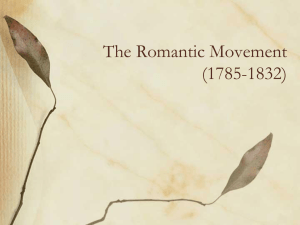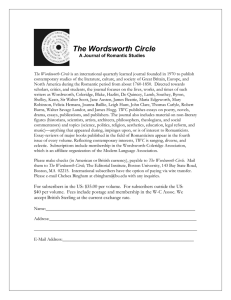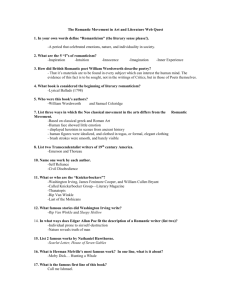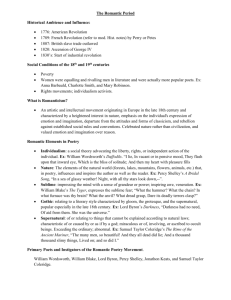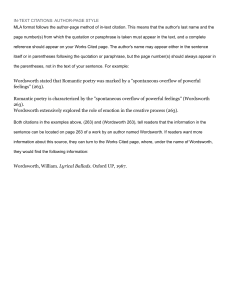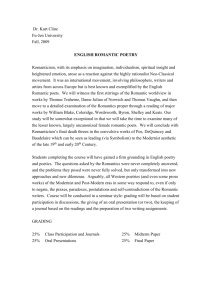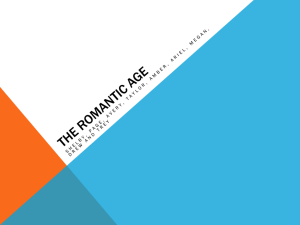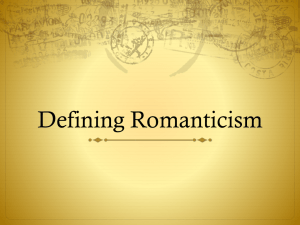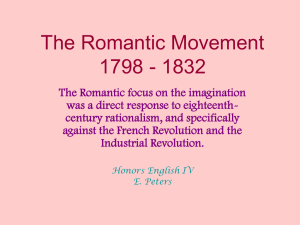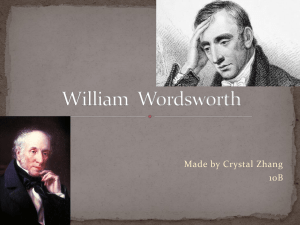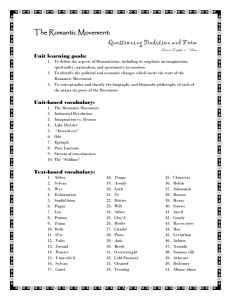1780-1830
advertisement
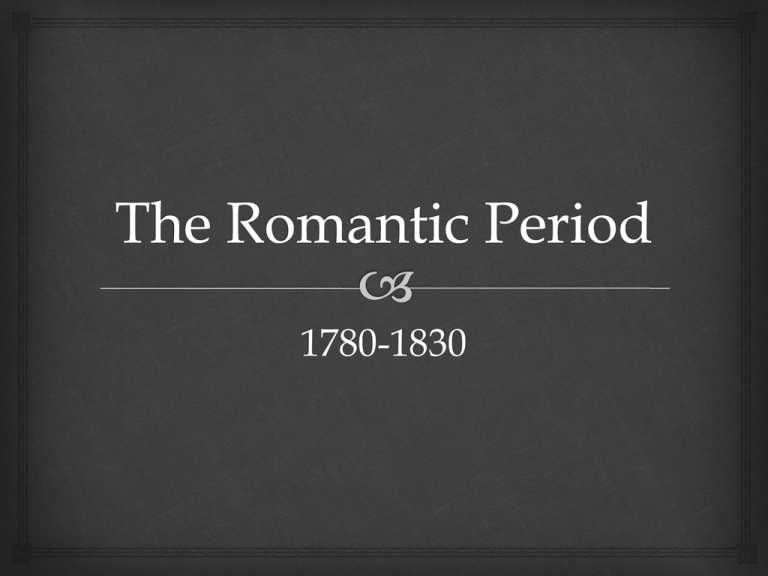
1780-1830 “Wanderer uber dem Nebelmeer” Caspar David Friedrich, c. 1818 Lyrical Ballads William Wordsworth And Samuel Taylor Coleridge Preface contains the two authors’ beliefs about the new artistic and spiritual movement The definitive statement of Romanticism. A Period of Change Politics-Radicalism Culture-Romanticism Economics - Industrial Revolution Dichotomy between the Age of Reason and the Romantic Age Age of Reason vs Romanticism Public and society Rational Objective Science Conscious intellect vs. vs. vs. vs. vs. Private reality Emotional Subjective Intuition The Unconscious The Romantic Hero The Romantics asserted the importance of the individual, the unique, even the eccentric. The Byronic hero is a moody, turbulent individualist, haunted by past sins committed. Byron Percy Shelley Glorification of the Common Man Romantic poets (like William Wordsworth) looked to the French Revolution as example of social ideals at work Glorification of Children Youth is the “fount of wisdom.” “The child is father of the man.” -Wordsworth Childhood state of free imagination is perfect Wordsworth’s View of Humanity At birth: still “trailing clouds of glory from God;” closest to nature In youth: slightly farther from nature and God, but still “nature’s priest,” As a young adult: the “prison house of the world” begins to close in on us. We can recapture the bloom of childhood and revive our creativity by communing with nature. New Subject Matter No more “lofty” subjects Wordsworth wrote about children, the aged, the mad, the poor, rural people. “Poet’s duty” to “descend lower , among cottages and fields, and among children.” Confront basic humanity “by stripping our own hearts naked, and by looking out of ourselves toward men who lead the simplest lives, and those most according to nature.” New Style Systematic denial of literary pretension. Common, not lofty language Often childlike vocabulary Freely expressed emotion Direct connection between the reader and author Pantheism Belief that God is present in nature and not separable from it. Espoused by Wordsworth Nature is a spiritual guide—not just a collection of pretty scenery. William Blake A mystic; said he communicated with spirits Ahead of his time Believed children are closer to the divine than adults because they possess free imaginations unhampered by the constraints of society and education. Blake believed that naive innocence must pass through and assimilate experience if it is to move on to “organized innocence,” which transcends both. Robert Burns Scottish poet Dialect: a regional variety of language with a particular pronunciation, grammar, and vocabulary. Farmer, limited education, struggled with poverty much of his life, died at 37. He expressed the feelings and concerns of ordinary people. Medieval Subjects, Gothic Settings Romantic writers fascinated with medieval subjects Gothic novels (like Frankenstein and Dracula featuring gloomy castles and supernatural events became popular Exotic places and characters were widely written about Schmadribach Waterfall in Lauterbrunnen Valley Joseph Anton Koch, 1811
